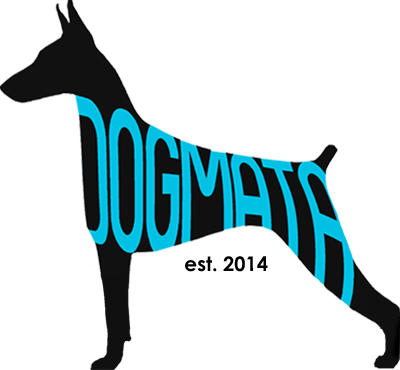Bringing a new dog into your life is the beginning of the most fulfilling relationship you can have with another animal. Proper building of respect (not to be confused with human love) will form a bond between you and your dog that will last a lifetime.
The following points are NOT reasons to get a dog. If you answer, "yes" to any of the below, you may need to take some time to rethink your decision. Be honest with yourself - you won't be able to fool a dog.
- Are you lonely and intending to use your dog as a surrogate for human companionship?
- Are you a young couple who wants to "practice" with a dog in preparation for child rearing or an older couple with "empty nest syndrome"?
- Are you getting a new dog to replace another who has recently passed away?
- Is it for status, like a getting a pitbull just for street cred or getting a cute little toy breed to attract the ladies?
A dog is a living being with powerful feelings, needs, and desires that are different, but not lesser, than your own. A dog is not a child, toy, status symbol, or a weapon. When you choose a dog to accompany your life, we hope you realize this great opportunity to form an unbreakable bond with another species.
Know yourself before you know your dog. You are about to embark (no pun intended) on an opportunity that comes with a price. The price of responsibility.
- Research the breed you are interested in getting. It is important to get a dog that matches your energy level. If you are a couch potato, a German Shepherd is not going to be the breed for you. What was your dog bred to do? For example, it's difficult for a person living in Florida to nurture the needs of a Siberian Husky or Saint Bernard.
- Am I committed to walking my new dog at least an hour a day? Many owners believe just having a big backyard for a dog to run around in is enough exercise. They couldn't be more wrong. A structured walk is a necessity in a dog's life. It recreates a pack hunt, reinforces you as the pack leader, and is THE best bond building exercise.
- Will I be a confident, calm, and assertive pack leader? A majority of new owners allow their puppy to behave however they want and get whatever they want because they're so cute. Problems usually begin to sprout once the new puppy becomes an adolescent and hormones kick in.
- Am I capable of setting rules, boundaries, and limitations? Potential issues can be avoided entirely if owners follow the simple guideline of exercise, discipline, THEN affection early on in puppy-hood and throughout the dog's life. This means going for a walk and doing obedience BEFORE the dog eats. A great example of discipline (rules, boundaries, and limitations) is having your dog sit and stay outside of the kitchen while you prepare the food. His reward (affection) for sitting and staying is the bowl of food.
- Can I provide my dog with a healthy diet at scheduled times? The worst mistake you can make as a new owner is allowing your dog to free feed. Your dog will never listen to or respect you as a leader if he gets what he loves the most - food - by simply doing nothing but existing. We believe in a high protein diet for growing puppies and adults that consists of 30% protein and 15% fat. The best time for feeding is after a walk and obedience training.
- Can I restrain myself from giving affection at inappropriate times? Fearful dogs are not born - they are created. Humans mistakenly believe that comforting a puppy when it is scared by reassuring it "everything will be okay" is helpful. It's not. By comforting a fearful, nervous puppy you are only nurturing that state of mind and reinforcing the negative behavior.
- Do I have the funds to regularly see a veterinarian and groomer when it is necessary? Puppy shots and other preventative care are vital if you plan on having a healthy puppy that can grow into a healthy adult. A properly groomed dog is just as important. Breeds such as Shih Tzus, Yorkshire Terriers are popular small dogs that require regular grooming that could range in price from $30.00 - $55.00 every other month. The larger the breed, the more expensive it is to groom.
- Will I properly socialize and train my puppy? Socialization means introducing your puppy to new environments, other people, and various animals. A socialized puppy is able to learn more quickly, complete complex tasks, and be less fearful.
- Am I able to open my mind to dog psychology? Although tempting and hard to break, you have to resist the urge to treat your dog like a human being. It's difficult, because of how easily we can anthropomorphize our dog's behaviors by applying our human emotions onto them. If you learn how to think like a dog, you can learn to speak with your dog in their native language (body language and energy).
- Am I prepared to spend thousands of dollars over my dog's lifetime? The cost of professional training or training classes, boarding, food, toys, beds, kennels, etc all add up quickly. On average, you'll spend a minimum $7,000 on your dog during it's lifetime.

